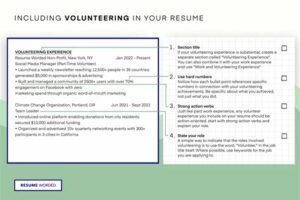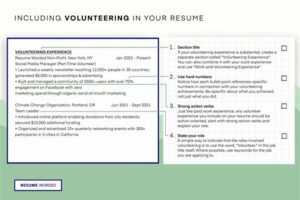Table of Contents
Discover the concept of volunteering without any monetary compensation. Explore the reasons why individuals choose to offer their skills and time for free. Learn about the benefits and impact of volunteering in various sectors, as well as the fulfillment and personal growth it can bring. Find out how you can contribute to a cause you believe in and make a difference without expecting financial rewards.
Can someone volunteer to work for free? This may seem like a strange question in a world where time is often equated with money. However, there are individuals who willingly give their time and skills without expecting any monetary compensation in return. Surprisingly, this act of selflessness has become a growing trend in various sectors, attracting professionals from all walks of life. Despite the absence of financial gain, volunteering offers unique opportunities for personal growth, skill development, and community engagement.
Introduction
In today’s society, where time is often equated with money, the idea of volunteering to work for free may seem counterintuitive. However, there are many individuals who willingly give their time and skills without expecting any financial compensation in return. These volunteers play a crucial role in various sectors such as non-profit organizations, healthcare, education, and disaster relief. In this article, we will explore the reasons behind why someone might choose to volunteer their services without receiving payment.
The Desire to Make a Difference
One of the most common motivations for volunteering is the desire to make a positive impact on the world. Many individuals are driven by a deep sense of compassion and empathy, and they see volunteering as an opportunity to contribute to causes they care about. Whether it’s helping disadvantaged communities, supporting environmental conservation, or advocating for social justice, volunteers understand that their actions can create meaningful change.
Skills Development
Volunteering offers an excellent platform for individuals to develop and enhance their skills. By working in diverse environments and tackling a range of tasks, volunteers gain practical experience and expand their knowledge base. This hands-on approach can be particularly valuable for those looking to explore new career paths or seeking to build their resume. Many organizations also provide training and mentorship opportunities, allowing volunteers to acquire new skills or refine existing ones.
Networking and Building Relationships
Volunteering often provides a unique opportunity to network and build relationships within a particular industry or community. By working alongside professionals and like-minded individuals, volunteers can establish valuable connections that may benefit them both personally and professionally in the future. These relationships can lead to job opportunities, collaborations, and even lifelong friendships.
Sense of Belonging
For many people, volunteering offers a sense of belonging and purpose. By joining a community of individuals who share similar values and passions, volunteers often find a supportive and inclusive environment. This feeling of being part of something greater than themselves can have a profound impact on their overall well-being and mental health. Volunteering also allows individuals to connect with people from different backgrounds, fostering cultural understanding and empathy.
Giving Back to the Community
Volunteering is a way for individuals to give back to their communities and address societal needs. Whether it’s helping the elderly, mentoring at-risk youth, or assisting in disaster relief efforts, volunteers play a vital role in supporting vulnerable populations and improving the overall welfare of society. By donating their time and skills, they contribute to the betterment of their communities and create a positive ripple effect.
Personal Fulfillment
Achieving personal fulfillment is another significant reason why individuals choose to volunteer their time and expertise. Engaging in activities that align with one’s values and passions can bring immense satisfaction and a sense of purpose. Volunteering allows individuals to tap into their strengths, gain a sense of accomplishment, and experience personal growth. It provides an avenue for self-reflection and can be a transformative journey for many.
Supporting Non-Profit Organizations
Non-profit organizations often heavily rely on volunteers to fulfill their missions. These organizations typically have limited resources and rely on the dedication and commitment of individuals who are willing to donate their time and services. Volunteers help these organizations save costs and maximize their impact, ensuring that essential services continue to be provided to those in need.
Creating a Global Impact
Volunteering can extend beyond local communities and have a global reach. Many individuals choose to volunteer abroad, participating in international development projects, disaster relief efforts, or conservation initiatives. By working in different countries and cultures, volunteers contribute to creating a more interconnected and compassionate world. They become advocates for change and promote cross-cultural understanding.
Flexible Commitment
One advantage of volunteering is the flexibility it offers in terms of time commitment. Unlike traditional employment, volunteering can be tailored to fit an individual’s schedule and availability. Whether someone can dedicate a few hours a week or commit to a full-time engagement, there are usually opportunities available that can accommodate their preferences. This flexibility makes volunteering accessible to individuals from various backgrounds and life situations.
Impact on Career
Volunteering can have a positive impact on an individual’s career trajectory. It allows individuals to gain practical skills and experiences that are valuable in the professional world. Volunteering also demonstrates a commitment to social responsibility, which is highly regarded by many employers. Additionally, volunteering can provide opportunities to explore different industries, expand professional networks, and even lead to paid positions within organizations.
Conclusion
Volunteering is a powerful way for individuals to contribute to causes they care about, make a difference in their communities, and grow personally and professionally. Despite not receiving financial compensation, volunteers play an invaluable role in various sectors, supporting non-profit organizations, building relationships, and creating positive change on both local and global levels. By understanding the motivations behind volunteering, we can appreciate and celebrate these selfless acts that shape a more compassionate and interconnected world.
The Benefits of Volunteering
Volunteering provides numerous benefits not only to the community but also to the individual who chooses to donate their time and skills without monetary compensation. By volunteering, one can gain valuable work experience, develop new skills, and expand their professional network.
Fulfillment and Personal Growth
Volunteering allows individuals to find personal fulfillment by giving back to society and making a positive difference in the lives of others. It provides an opportunity for personal growth, self-discovery, and a sense of purpose, which can have a significant impact on one’s overall well-being and sense of identity.
The Power of Networks
One of the major advantages of volunteering is the ability to build a strong professional network. Through volunteering, individuals have the chance to meet like-minded individuals, potential mentors, and even future employers. Volunteering can open doors to new opportunities and provide individuals with valuable connections that can enhance their career prospects.
Skill Development and Enhancement
Volunteering offers a unique platform for individuals to develop and enhance their skills. Whether it is leadership, communication, problem-solving, or teamwork, there are countless opportunities to learn and grow through volunteering. These acquired skills translate well into professional settings and can greatly enhance an individual’s employability.
Exploring Different Industries
Volunteering gives individuals the chance to explore various industries and career paths without committing to a specific job or industry. It allows individuals to gain hands-on experience and insight into fields they may be considering for their future career. This experience can be valuable in making informed decisions about one’s career trajectory.
Resume Building
While volunteering may not provide immediate financial compensation, it can greatly contribute to one’s professional resume. Employers often value individuals who have demonstrated a commitment to service and community involvement, as it reflects the individual’s dedication, motivation, and ability to work well with others.
Creating a Positive Impact
Volunteering allows individuals to actively contribute to causes and initiatives they are passionate about. By donating their time and skills for free, volunteers have the power to create a positive impact in their communities and society at large. This sense of fulfillment and making a difference can be incredibly rewarding and fulfilling.
Exposure to Different Cultures and Perspectives
Volunteering can expose individuals to diverse cultures, perspectives, and experiences that they may not encounter in their daily lives. This exposure helps promote empathy, understanding, and tolerance, which are valuable qualities in both personal and professional settings. It broadens individuals’ horizons and enriches their perspectives on the world.
In today’s competitive job market, the idea of someone volunteering to work for free may seem counterintuitive. However, there are certain scenarios where individuals may choose to offer their services without compensation. It is important to examine this practice from a professional perspective to understand its potential benefits and drawbacks.
- Skills Development: Volunteering to work for free can be an opportunity for individuals to gain valuable skills and experience in a particular field. It allows them to apply theoretical knowledge to real-life situations, enhancing their practical expertise. This hands-on learning can be particularly beneficial for recent graduates or career changers.
- Networking Opportunities: Volunteering can provide individuals with unique networking opportunities. By working alongside professionals in the industry, volunteers can make important connections that may lead to future employment prospects. Building a strong professional network is essential for career advancement.
- Personal Fulfillment: Some individuals choose to volunteer their time for personal fulfillment rather than financial gain. They may have a genuine passion for a cause or an interest in supporting a specific organization. Volunteering can provide a sense of purpose and satisfaction that goes beyond monetary rewards.
- Resume Enhancement: Having volunteer experience on a resume can be viewed positively by potential employers. It demonstrates an individual’s commitment, dedication, and willingness to go above and beyond. Employers often value candidates who have demonstrated their ability to contribute to the community and work well in a team.
- Testing the Waters: Volunteering can also serve as a way to test the waters in a particular field or industry. It allows individuals to gain insight into the day-to-day responsibilities and challenges of a profession before committing to it full-time. This firsthand experience can help individuals make more informed career decisions.
While there are potential benefits to volunteering, it is important to consider the limitations and potential drawbacks as well. Working for free may not be a viable option for everyone, especially those with financial responsibilities or limited resources. It is crucial to strike a balance between gaining experience and ensuring fair compensation for one’s skills and time.
In conclusion, although the idea of working for free may seem unconventional in a professional context, there are valid reasons why someone may choose to volunteer their services. Whether it is for skills development, networking opportunities, personal fulfillment, resume enhancement, or testing the waters, volunteering can offer unique advantages. However, it is essential to evaluate individual circumstances and strike a balance between gaining experience and ensuring fair compensation.
Dear blog visitors,
Thank you for taking the time to read our article on whether someone can volunteer to work for free. We understand that this is a topic of great importance and interest, and we hope that our insights have provided you with valuable information.
Throughout the article, we have explored the concept of volunteering without financial compensation and its implications. While it may seem noble to offer one’s services for free, it is crucial to consider the potential consequences and ethical considerations involved.
First and foremost, it is essential to recognize that individuals who volunteer their time and skills often do so because they are passionate about a cause or wish to contribute to a specific organization. However, volunteering should not be seen as a means to replace paid positions or exploit individuals by offering free labor. It is important to strike a balance between giving back to society and ensuring fair treatment and opportunities for everyone involved.
Additionally, volunteering without financial compensation may inadvertently perpetuate inequality within the workforce. By accepting unpaid positions, some individuals may find themselves unable to afford basic necessities or pursue other career opportunities that offer monetary compensation. This can lead to a system where only those who can afford to work for free can gain experience and professional growth, further exacerbating social and economic disparities.
In conclusion, while the desire to volunteer and make a positive impact in the world is commendable, it is crucial to approach volunteering with careful consideration. Instead of working for free, individuals can explore opportunities to volunteer their skills and expertise through organizations that provide stipends or support volunteers in other ways. By doing so, we can ensure that volunteering remains an inclusive and empowering experience for all.
Thank you once again for visiting our blog and engaging with this important topic. We encourage you to continue the conversation and share your thoughts with others, as addressing these issues collectively is key to creating a fair and just society.
Sincerely,
The Blog Team
Video Can Someone Volunteer To Work For Free
People also ask about Can Someone Volunteer to Work for Free:
Is it legal for someone to volunteer to work for free?
Volunteering to work for free is generally legal, as long as it is done under certain circumstances. Non-profit organizations and charities often rely on the assistance of volunteers to accomplish their goals. However, it is important to check with local labor laws and regulations to ensure compliance with any specific requirements or limitations.
What are the benefits of volunteering to work for free?
Volunteering can bring numerous benefits, such as gaining valuable work experience, developing new skills, expanding one’s professional network, and making a positive impact on the community. Additionally, volunteering allows individuals to explore different fields or causes they are passionate about and potentially opens doors to paid opportunities in the future.
Should I volunteer if I can’t afford to work for free?
While volunteering is a noble endeavor, it is essential to prioritize your own financial stability. If you cannot afford to work for free due to financial constraints, it is advisable to explore other options that offer compensation. Many organizations offer part-time or flexible volunteering opportunities that can accommodate individuals with limited availability.
Are there any limitations to volunteering for free?
While volunteering is generally encouraged, there may be limitations depending on the country, state, or organization involved. Some jurisdictions have specific regulations regarding unpaid work, including restrictions on the number of hours an individual can volunteer or the type of tasks they can perform. It is crucial to familiarize yourself with relevant laws to ensure compliance.
How can I find volunteer opportunities that align with my interests?
There are various ways to find volunteer opportunities that match your interests. You can start by researching local non-profit organizations, charities, or community centers that focus on causes you care about. Additionally, online platforms and websites dedicated to volunteering connect individuals with organizations seeking volunteers. It is recommended to reach out directly to these organizations or use specialized platforms to find suitable opportunities.






